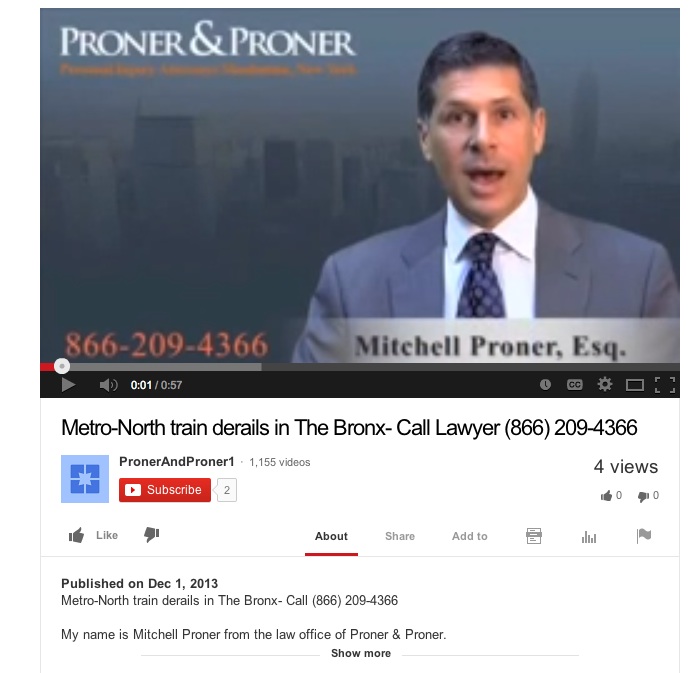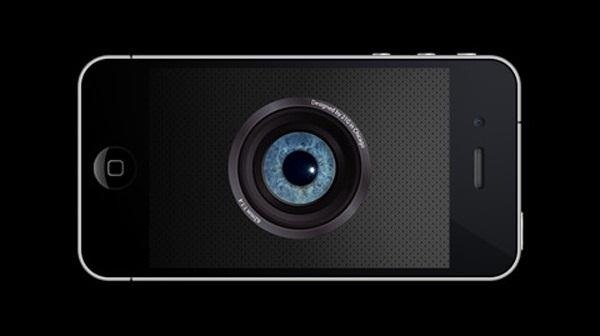 The New Jersey Office of Attorney Ethics has filed a Complaint for misconduct against Joseph Rakofsky. It’s dated December 16, 2013, but hasn’t been previously reported.
The New Jersey Office of Attorney Ethics has filed a Complaint for misconduct against Joseph Rakofsky. It’s dated December 16, 2013, but hasn’t been previously reported.
There are two main issues in the Complaint. The first deals with the way he described his prior legal experience in web site advertisements. The second with the way he sought business in states where he isn’t admitted to practice law.
For the reasons below, I think this is a pretty important case to follow that affects all lawyers, regardless of whether we advertise or not.
But first, a very fast primer for those new to the Rakofsky saga: He was a recently admitted New Jersey attorney advertising his services in New York and other states, claiming vast experience. He then went down to Washington D.C. to try his very first case — a murder trial.
He didn’t do well, with the judge declaring a mistrial part way through citing, among other things, his lack of competence.
The Washington Post picked up the story of the trial, and then bloggers picked up the WashPo story and added more, regarding (among other things) the subject of his advertising and its relationship to his actual legal experience. Then he committed career suicide by suing a boatload of bloggers for defamation, including me, in a case quickly dubbed by Scott Greenfield as Rakofsky v. The Internet.
He then amended the suit to add those that skewered him for starting the suit. The case was finally dismissed last year.
Primer over. Read those links if you want more (or some of the 101 links here), as it’s time to turn to the nuts and bolts of the ethics complaint and his response. But I really only want to touch on one issue, and will leave the rest for others, as I am local counsel to many of the people sued. What you get here today, therefore, is mostly just a few facts and only limited opinions.
The first of the two subjects the ethics complaint touches on is the way he advertised himself, among many other claims, as having:
worked on cases involving Murder, Embezzlement, Tax Evasion, Civil RICO, Securities Fraud, Bank Fraud, Insurance Fraud, Wire Fraud, Conspiracy, Money Laundering, Drug Trafficking, Grand Larceny, Identity Theft, Counterfeit Credit Card Enterprise and Aggravated Harassment.
And the problem identified by the Office of Attorney Ethics is that he had barely any experience at all and inflated the importance of brief stints at a few firms, some no more than a few months long. The Complaint maintains that this was misleading advertising. In his answer to the Complaint, Rakofsky states that one of the mitigating circumstances for his conduct was that he was “young and inexperienced.”
The second issue had to do with his advertising his services in Washington D.C. and New York (and Connecticut, though that isn’t cited in the Complaint), even though he’s not admitted in those states. That is a big no-no. His defense, culled from his answer, is that he was a partner of some type with Sherlock Grigsby in Washington D.C., who was local counsel to the murder trial, and with Richard Borzouye in New York, who was local counsel here as Rakofsky sought pro hac vice admissions in several matters.
The exact nature of those relationships is described by Rakofsky’s counsel in the answer as “partners in that they shared expenses and referrals of cases providing access to other jurisdictions.” This, he seems to argue, lets him advertise that he has an office for the practice of law in other states. Rakofsky’s counsel asserts, in fact, that “This was intentionally his business model.”
Now there is a lot of meat and potatoes for others to analyze within those documents — competence, partnerships, advertising, solicitation, unlicensed practice of law and more — but this is the part that I wanted to discuss: When these twin issues of misleading advertising and practicing law outside his own jurisdiction were brought to the attention of the New York judge that heard the motions to dismiss in our defamation case, he rejected it all. He called it, quite charitably, mere “puffery” and moved on. (See Transcript 4.8.13, at page 38-40.)
Other judges might have been livid and lowered the boom on him, not only sanctioning him but referring him to the District Attorney for potential prosecution regarding the practice of law without a license. I think most people believe he got off very easy.
There will be a hearing in New Jersey at some point in the future on the ethics charges, though it’s not yet scheduled. My understanding is that such hearings are open to the public. The Complaint and answer in this matter are likewise public and I’ve provided them at the bottom of this post.
New Jersey is, therefore, very much unlike New York, where most disciplinary matters are kept hush-hush. Attorney Dominic Barbara, for example, infamously racked up nine Letters of Caution, nine Admonitions, and two Advisements without the public knowing, before finally being suspended. But it was only then, at the time of suspension, that all those other sanctions came to light.
New York and New Jersey couldn’t be more different, it appears, in how they handle ethics complaints.
The issue of lawyers exaggerating their experience in a misleading way has percolated among many law bloggers, often summed up by the now-ancient (1993) New Yorker cartoon that I used as art work above, “On the internet, nobody knows you’re a dog.”
The instances of ethics committees trying to hold lawyers accountable for internet advertising are few and far between, and it’s clear that the attitudes of ethics panels will differ between states. While I obviously have a personal interest at stake, I can’t help but think that an objective viewer will find some pretty important lessons that emerge when the smoke has cleared, and possibly new case law.
The matter deserves to be watched — not to kick Rakofsky again — but to see how a state ethics committee will handle issues of misleading advertising on the internet. While the standard of what constitutes misleading is no different than a dead-tree Yellow Pages ad, the reality is that vastly more information can be put up on a website. And that means greater opportunity to “massage” a biography, and greater ease for lawyers to advertise their existence in jurisdictions where they aren’t admitted to practice.
The ultimate decision in this ethics case will matter to to us all. Because even if you don’t advertise, our collective reputation as attorneys is affected by those that do.
The Office of Attorney Ethics Complaint is here:ComplaintAndExhibits (December 16, 2013)
Rakofsky’s Answer is here: Answer Rakofsky (January 27, 2014)

